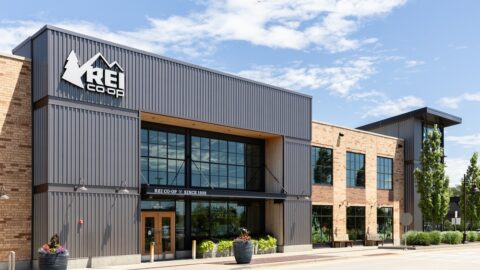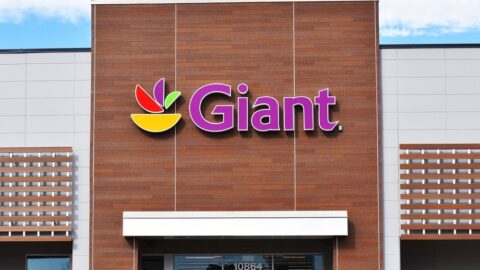With Generation Z already wielding $44 billion in buying power, retailers are eager to snag their share. They are working hard to create authentic products and experiences that resonate with this group amid a flurry of campaigns and content.
At the Millennial 20/20 conference, Nicholas F. Martire, VP of ALDO Group North America, emphasized how his company’s various brands, including ALDO, Call It Spring and Globo, cater to the growing Gen Z demographic by treating its end consumers as if they are channel-agnostic from the get-go.
In an exclusive interview with Retail TouchPoints, Martire elaborated on the strategies needed to engage these consumers, the importance of Gen Z shoppers to the ALDO Group brands, and how Gen Z differs from other generations.
RTP: Why is the Gen Z demographic so important to The ALDO Group?
Martire: We are specialists in mid-price commercial fashion, and you have to evolve with the times and you have to stay connected with the end consumer. Well, the next biggest demographic is Gen Z. By 2020, they’re going to make up a quarter of the world’s population. It’s something that you can’t ignore. Because of our brand strategy, it makes sense to evolve so we could connect with them.
We’re just at the crest of another massive wave, and it’s the biggest wave we’ve ever seen from a consumer demographic perspective.
RTP: The numerous brands under the ALDO Group, such as ALDO and Call It Spring, are increasingly focused on attracting Gen Z consumers. What strategies are you using to get these consumers aboard?
Martire: At the end of the day, the first thing is product. We have to get the product strategy right. If you have the right product, hopefully it all flows from there.
We’re following a digital-first content marketing strategy. Every product is shot with the intent on digital first, and that starts with mobile. Up to 45% of our total online sales for the Call It Spring brand are being purchased on a phone. They’re not just doing the research on the phone; 45% of these people are actually transacting.
We focus on video, and that video has to be short. Gen Z has an eight-second attention span, and you’re going to win them or you’re going to lose them within those eight seconds. All of the content that we create has to be sharable, especially since YouTube has 15-second long ads attached to their videos.
RTP: What other differences do you see in Gen Z that you must take into account compared to your approach to other generations/demographics?
Martire: It’s easy to compare them with Millennials, but they’re a totally different generation than any before them. For one, Gen Z was born with the technology in hand; they’ve never known what’s it’s like not to have access to this technology. And so this has made them a lot more autonomous. I don’t want to say they’re necessarily smarter, but because they have access to so much more technology, they’re much better informed. It’s part of their nature that they also want to be informed.
They want to know what’s inside the product. They want to know about product integrity…they want to know what’s behind the materials and where they were sourced from. They want to know that the brand or the retailer is invested in it, and that there’s some sort of social responsibility that comes with it.
The way we approach them is a lot more natural and authentic. We shoot lifestyle settings that are supposed to reflect real life so that it could be more approachable for the consumer. If you shoot the way a fashion brand did 10 years ago, this generation sees right through it, and can see that it’s fake. For a brand to be relevant, Gen Z has to see that the product reflects reality.
RTP: In your talk at Millennial 20/20 you spoke about how ‘Omnichannel is dead.’ Can you elaborate on that line of thinking, and how that has helped your brand strategies move ahead?
Martire: It was a bit of a risk to put that slide up there, and I knew it would definitely garner some attention. It’s easy to be misinterpreted.
If you think back 10 years ago, people were talking about “multichannel,” and that this is what’s coming — that we’d have to move from the traditional retail store and wake up and see that there’s other channels. Fast forward, and we got to omnichannel, which meant that we should be in all these channels. I think that’s where everyone’s at right now.
But my view is that you need to be 360-degrees, and there are no channels, because Millennials and Gen Z do not see channels. They’re able to purchase on a smartphone or a tablet, or research on these devices before going back to shop in-store — they just don’t see them separately. The experience must be effortless for the consumer.
If a retailer is still thinking omni, it just means that they’re still envisioning it, they’re still trying to conceptualize it and they’re thinking about how it applies to their brand. It means they’re behind the curve.
RTP: How did you first get into the retail industry?
Martire: My dad managed a number of different companies in Canada. One of the brands was Isotoner gloves and slippers, and he also was in charge of Sara Lee Canada, which had different brands such as Champion Athletic.
My parents had opened factory outlets when I was in my last two years of university, so my first foray in retail was working in outlets that my family owned and operated. That was like a crash course in being a merchant, working in that environment. Right after university, I moved to Toronto and was one of the team members that opened the first NikeTown outside the U.S. in 1999.
I actually was a supplier to the ALDO Group for approximately 10 years before I joined the company. I was living in Europe and I knew the family very well because I worked with them. When I moved home from Europe in 2010, I started the wholesale business of the ALDO Group with David Bensadoun, who is now the CEO. Together, we built that to basically be a business that now does $1 billion in retail market share in a five-year span.
RTP: What were your inspirations, whether mentors or companies you looked up to, that shaped the way you carry out your business today?
Martire: I’d say I had some great mentors within ALDO such as my past CEO and current deputy chairman. One of the companies, without question is Amazon and definitely Jeff Bezos. His recent letter to shareholders was very inspiring, and it’s very relevant to anybody’s business right now, where he was talking about what the culture needs to be in the company, how he views bureaucracy and internal processes. The way Bezos specifically thinks is one of the most influential parts of our industry right now.
RTP: What advice do you have for retailers aiming to succeed in today’s retail environment where every touch point counts?
Martire: Embrace the change…embrace technology in the future or you will die. You need to get ahead of it. It’s moving faster than you could ever dream. However fast it’s moving, multiply that by 10 and that’s how quick this pace of change is. My statement is a bit bold, but given what we are witnessing as retailers and how much access the end consumer has to different touch points, you just need to invest in the technology and get behind it.













